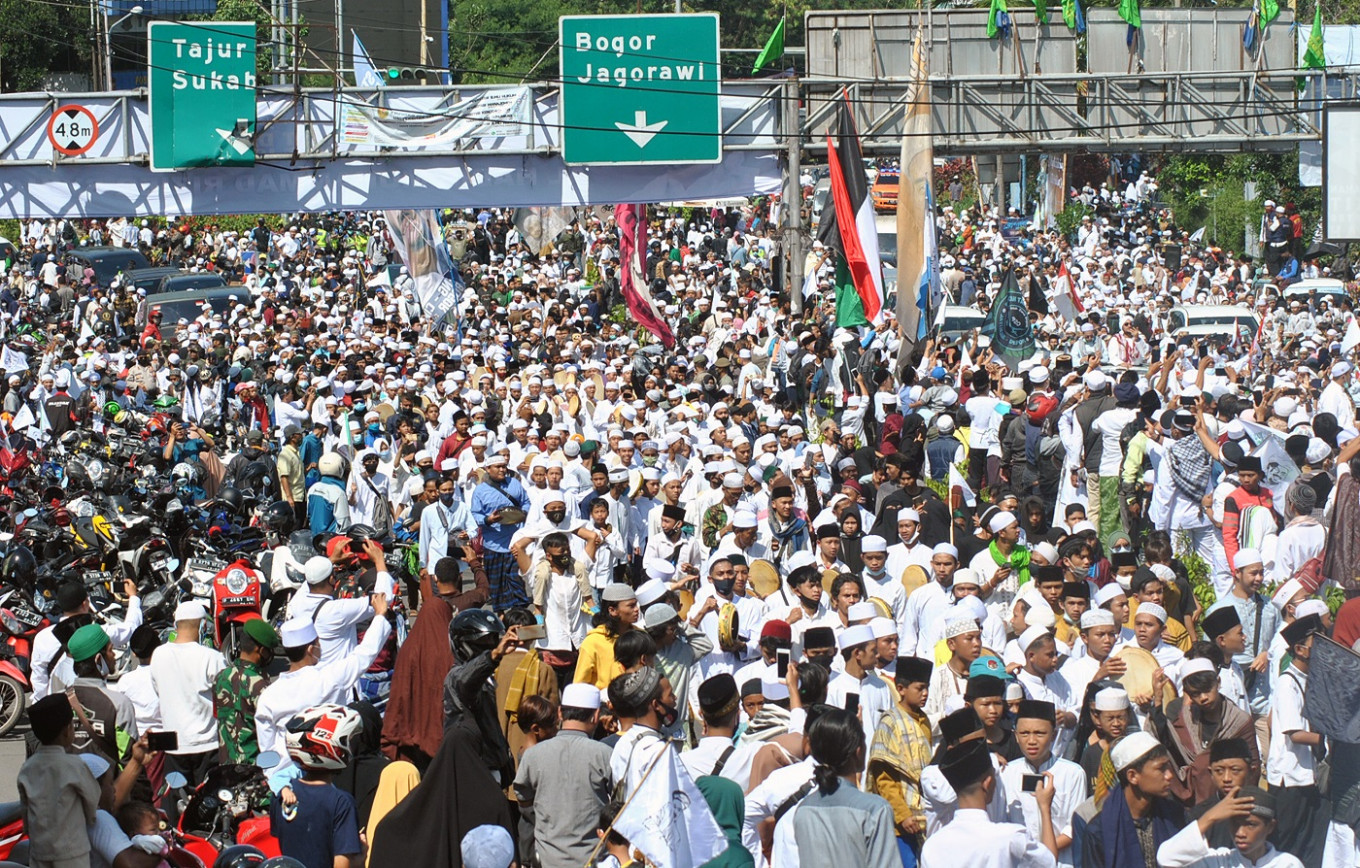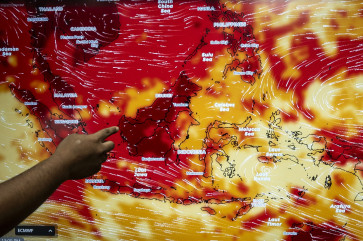Stricter punishment needed for health protocol violators: experts
The public have become neglectful as they do not have a clear picture on the severity of COVID-19 cases in Indonesia.
Change Size
 Thousands of people welcome firebrand cleric and leader of Islam Defenders Front (FPI) Rizieq Shihab in the Puncak area, Gadog intersection, Bogor regency, West Java on Nov. 13. (Antara/Arif Firmansyah)
Thousands of people welcome firebrand cleric and leader of Islam Defenders Front (FPI) Rizieq Shihab in the Puncak area, Gadog intersection, Bogor regency, West Java on Nov. 13. (Antara/Arif Firmansyah)
The authorities need to enforce stricter sanctions against people who violate health protocols following the rapidly increasing daily COVID-19 cases in the nation, experts have warned.
“Health protocols should be imposed strictly among the public without any exception, especially when there’s a large crowd of thousands of people, which could turn into a mega cluster and prolong the pandemic,” epidemiologist Dicky Budiman of Australia’s Griffith University said as quoted by kompas.id on Monday.
He said that there was a lot of evidence that pointed to large crowds as the cause of emerging clusters. In South Korea, for example, a mega cluster appeared as a result of a large gathering for a religious activity in February.
"At that time, up to 5,000 new cases appeared within two weeks after the large gathering, which involved hundreds of thousands of people. That cluster became South Korea’s largest virus transmission source,” Dicky said, adding that the religious group leader was later punished for putting the public's safety at risk.
Pandu Riono, an epidemiologist from the University of Indonesia, said that the law failed to provide a comprehensive regulation regarding punishment for people who violate health protocols.
He specifically cited how containing COVID-19 in Jakarta become more difficult as a result of certain activities that attracted large crowds, such as a parade organized by Islam Defenders Front (FPI) members and sympathizers to welcome the return of their leader Rizieq Shihab.
Furthermore, Rizieq also organized a large wedding party for his daughter, in which he failed to put a limit on the number of guests, resulting in large crowds attending the party.
“The effect can be seen within the next 10 to 14 days,” Pandu said as quoted by tempo.com on Sunday.
He added that the impact of the long weekend in October could be felt through the spike in daily COVID-19 cases in Jakarta.
In order to prevent another high daily COVID-19 case increase, Dicky urged people who attended large public events to get themselves tested and observed.
The COVID-19 situation in Indonesia, Dicky went on to say, had grown increasingly worrying since there was no significant progress in reducing the virus spread. Furthermore, the public was also becoming more neglectful since they did not get a clear picture of the severity of COVID-19 cases in Indonesia.
“The small number of tested samples makes it seem as if the number of cases is still small. Based on the epidemiological model, the number of daily cases in Indonesia has increased from 10,000 to 70,000 since July,” Dicky said.
“This means daily cases have grown three times as much as discovered cases,” he added. (dpk)









